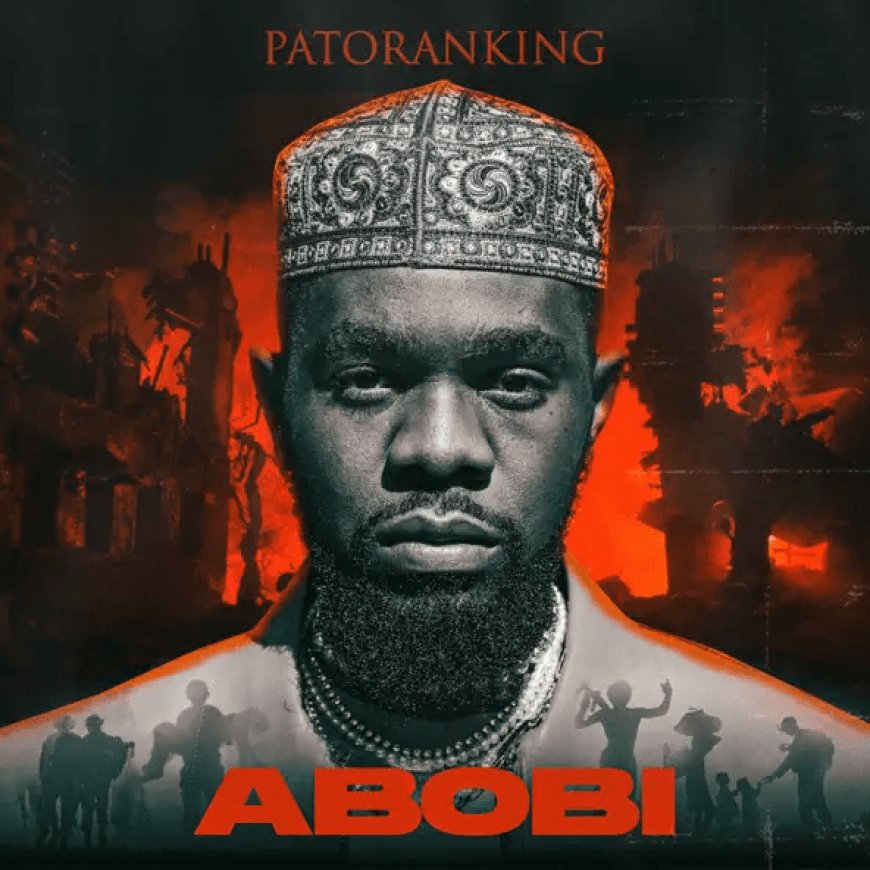Patoranking's Abobi: A Marriage Of Music And Poetry
*A social statement well presented.

Patoranking’s Abobi is one musical piece I cannot stop trying to fathom each time I hear it play. Over and over again, this beautiful dilemma unfolds every time I listen to it. Truly, I find it deep, soulful and poetic in both content and rendition.
Truly, my interest in the talented Nigerian musical act goes far beyond Abobi, an Afrobeat rendition. Some of his other pieces, done in Reggae, are no less enchanting and stimulating, reasons I find him a musical act who knows his onions.
Almost effortlessly, Patoranking successfully delivered a marriage of music and poetry in one breath. His rhythm is not only deep, it is painted in a language that is musically alliterative, demonstrably deep in content and delivery.
In Abobi, Patoranking took his social consciousness to a new level by picking on a number of social issues plaguing the country. They include the unexplained run of murder in which the perpetrators are never identified even if they are known, and the unhinged reign of violence, all of which are serially wrought on the hapless and helpless common man. It is an epidemic that has left even the state in a dilemma.
Powerfully, Patoranking adopted a few highly populated ghetto-like and urban communities across Nigeria - Rumuokoro, Ikorodu, Agidingbi and Rumuola, located in Lagos and Rivers states, to signpost his message. In addition, he picked common Nigerian ghetto name, Abobi, another word for Bobo, the adult version of “Bomboy” or “Bornboy”, to represent that helpless, powerless Nigerian who regularly suffer indignities of abuse, violence and even death at the hands of armed agents of authorities to pass the message of perennial injustice in the country as the great Afro- beat legend, Fela Anikulapo Kuti chronicled in his 'Sorrow, Tears and Blood' album.
Rumuokoro (a stand-in for Nigeria) don cachi fire… Last night I was walking on the road when they shoot the man and shoot him tyre…Ikorodu (another stand-in for Nigeria) don cachi fire, As I dey waka I dey see one man wen bi say dem shoot wen carry (load) Kaya…he sings before going on to deliver the feared message-Dem don kill Abobi-a reminder of the still vexious, ‘EndSARS’ incident in Lekki. In the first stanza, part of which is highlighted above, he didn’t stop at saying what happened. He went on to pop the rhetorical question, one in everyone’s mind, “Na who kill Abobi”?
Without waiting for the answer, Patoranking went on to remind Abobi’s killer that whoever live by the gun will surely die by same. Afterall, they will get the message when Abobi gets to a point of no return, mobilize his kin and kilts. The outcome is predictable.
“Na so dem kill innocent man, Innocent man get Paddy man, Paddy man vex turn Taliban, Taliban run the whole town down.
Before even telling Abobi’s killer(s) of the consequences of the act, Patoranking sought to know how they would feel when victims decide to fight back. “How you go feel wen at the point of no return”? he asked rhetorically. Suffice to add that in asking the question, he simply wants the oppressor to be ready for Karma as the oppressed will fight back one day.
Of course evidences of reprisal actions are already self-evident in today’s Nigeria where troubling developments, including violent nationalism, terrorism, etc, reign supreme, with those involved finding justification in the unending run of injustice. The real point to be made is that the anonymous and tribe-less Abobi embodies the plight of every common man, from Rumuokoro, Ikorodu, through Rumuola to Agidingbi or anywhere else in Nigeria.
“Na so dem kill innocent man, Innocent man get Paddy man, Paddy man vex turn Taliban, Taliban run the whole town down...”
Overall, Patoranking’s haunting lyrics reminds his listeners of the reality of violence, alongside its dire consequences. They are reminded of the fact that the anomaly is often justified as a reaction to perceived era of systemic injustice in the state. Certainly, Patoranking’s rendition predisposed him as one who truly understands the pain of the common people. Of course his life story exemplifies that reality.
Uniquely, Patoranking’s rendition of Abobi is another portrayal of his intriguing musical ingenuity. That is an obvious plus for his musical career. Notably, while his vocal sensuality is, as usual, in ample display, very evident in the manner he effortless weaves his tones from a conversational and poetic standpoint to pitching the discussion in high notes without his pitch showing any itch. “Dem don kill Abobi, Na who kill Abobi…Fire, fire fire…” he weaves.
The end result is an output that leaves the audience lovingly suffused in the message and poetic manner of its delivery. He achieved this in the way he pushed the message - in his slow tempo Afrobeat rythm, reminiscent of ‘Suffering and Smiling’ also legendary Fela Anikulapo Kuti. It is poetic, soulful and blissfully satisfying.
Kudos Patornking
What's Your Reaction?





























































